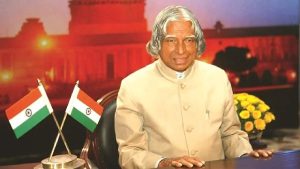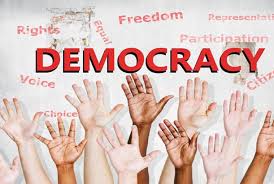When people think about power in India’s democracy, they often imagine Parliament or the Prime Minister.
However, standing above the day-to-day political fray is the President of India — the ceremonial head of state and a key guardian of the Constitution.
While the President’s role may seem largely symbolic, it is, in reality, critical for maintaining the health of India’s democratic system.
From giving assent to laws to exercising emergency powers, the President ensures that the machinery of governance functions within the boundaries of the Constitution.
Understanding the President’s role in India’s democracy reveals the importance of balance, stability, and unity in a complex, diverse country.
Let’s explore the responsibilities, powers, and significance of the Indian President to see why this position remains vital for the nation’s political system.
Who Is the President of India?

(Image via Getty)
The President of India is the constitutional head of the Republic of India and the supreme commander of the Indian Armed Forces.
Elected for a five-year term, the President acts on the advice of the Prime Minister and the Council of Ministers but retains significant discretionary powers under special circumstances.
Election of the President
The President is elected by an electoral college consisting of:
-
Members of both Houses of Parliament (Lok Sabha and Rajya Sabha)
-
Elected members of the Legislative Assemblies of all states and union territories
The process ensures that the President is a broadly accepted national figure, not just a representative of the majority government.
Constitutional Powers of the President
The President’s powers are broad and can be categorized into several types:
1. Executive Powers
-
Appoints the Prime Minister and, on their advice, the other ministers.
-
Appoints governors, judges of the Supreme Court and High Courts, and ambassadors.
-
Exercises supreme command over the defense forces.
2. Legislative Powers
-
Summons and prorogues Parliament sessions.
-
Dissolves the Lok Sabha.
-
Gives assent to Bills passed by Parliament, turning them into law.
-
Can send messages to Parliament encouraging debate or reconsideration.
3. Judicial Powers
-
Can grant pardons, reprieves, and remissions of punishment under Article 72 of the Constitution.
-
Especially important in cases involving death sentences or under martial law.
4. Emergency Powers
In situations of national crisis, the President can:
-
Declare a National Emergency (Article 352)
-
Impose President’s RuleArticle 356) in states (Article 356)
-
Declare a Financial Emergency (Article 360)
These powers are rarely used but are critical in maintaining national unity and governance during turmoil.
The President’s Role in Day-to-Day Governance

(Image via Getty)
While most executive actions are carried out by the government, they are done in the President’s name.
Every law passed, appointment made, and international treaty signed carries the President’s formal approval.
In normal circumstances, the President acts on the advice of the Council of Ministers.
However, during uncertain situations — like hung parliaments or constitutional crises — the President can exercise discretion in selecting a Prime Minister or sending a Bill back to Parliament for reconsideration.
The Symbolic Role: Unity and Continuity
Beyond constitutional and administrative duties, the President serves a symbolic role:
-
Represents India at home and abroad.
-
Embodies the unity and integrity of the nation.
-
Upholds democratic traditions and constitutional values.
The President attends ceremonial functions, gives inspiring addresses to Parliament, and speaks to the nation on important occasions like Republic Day and Independence Day.
Real vs. Perceived Power: The Debate
It’s often said that the President of India is a “rubber stamp” authority.
While day-to-day governance is indeed controlled by the elected government, this view oversimplifies the role.
At crucial moments — like emergencies, political deadlocks, and during the transition of power — the President’s decisions can shape the nation’s destiny.
Thus, the role demands wisdom, impartiality, and a deep understanding of constitutional values.


